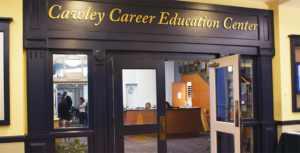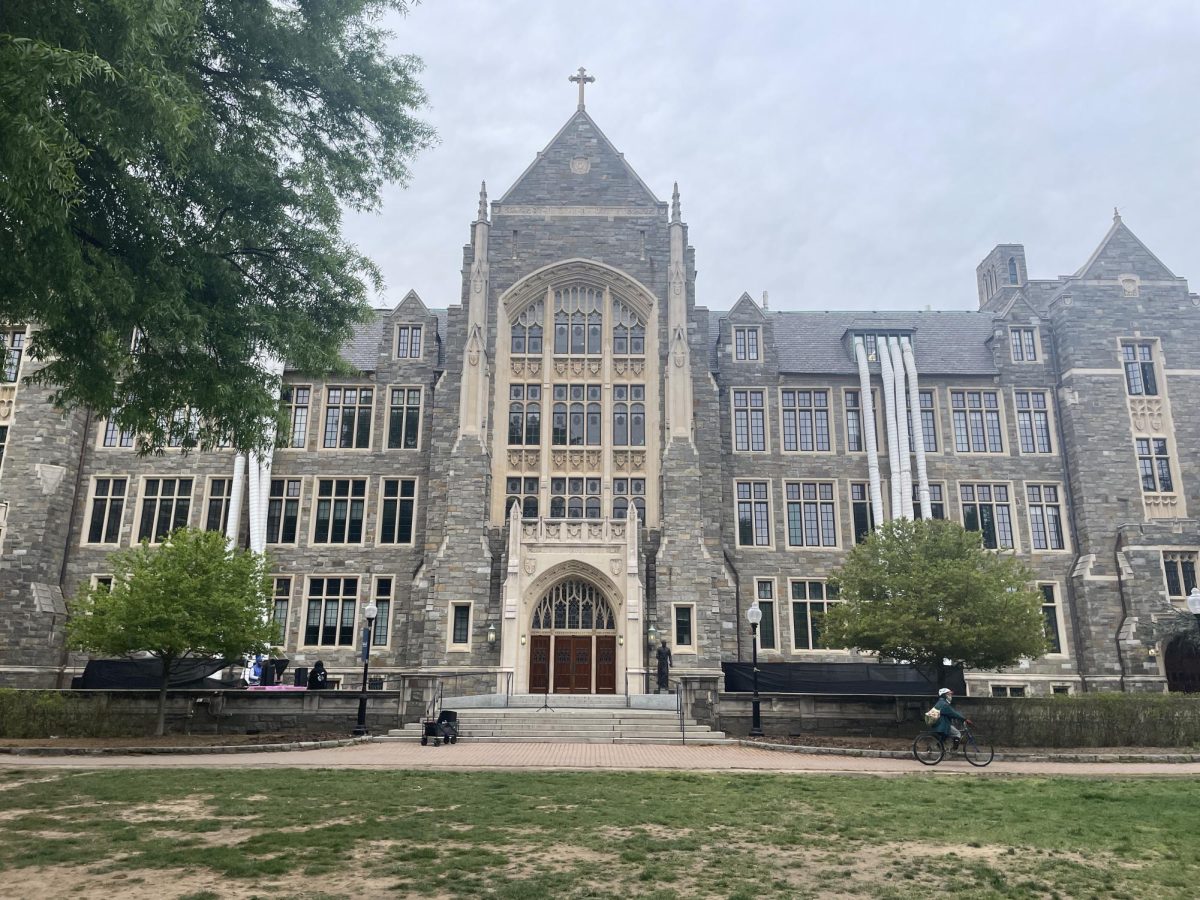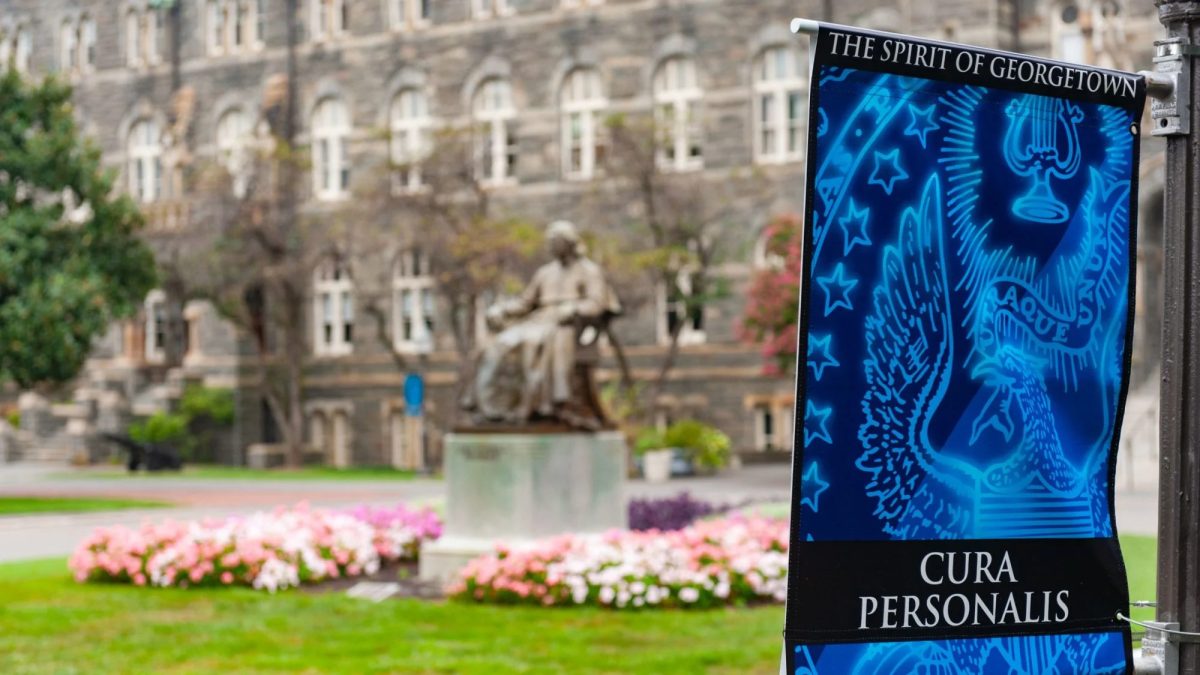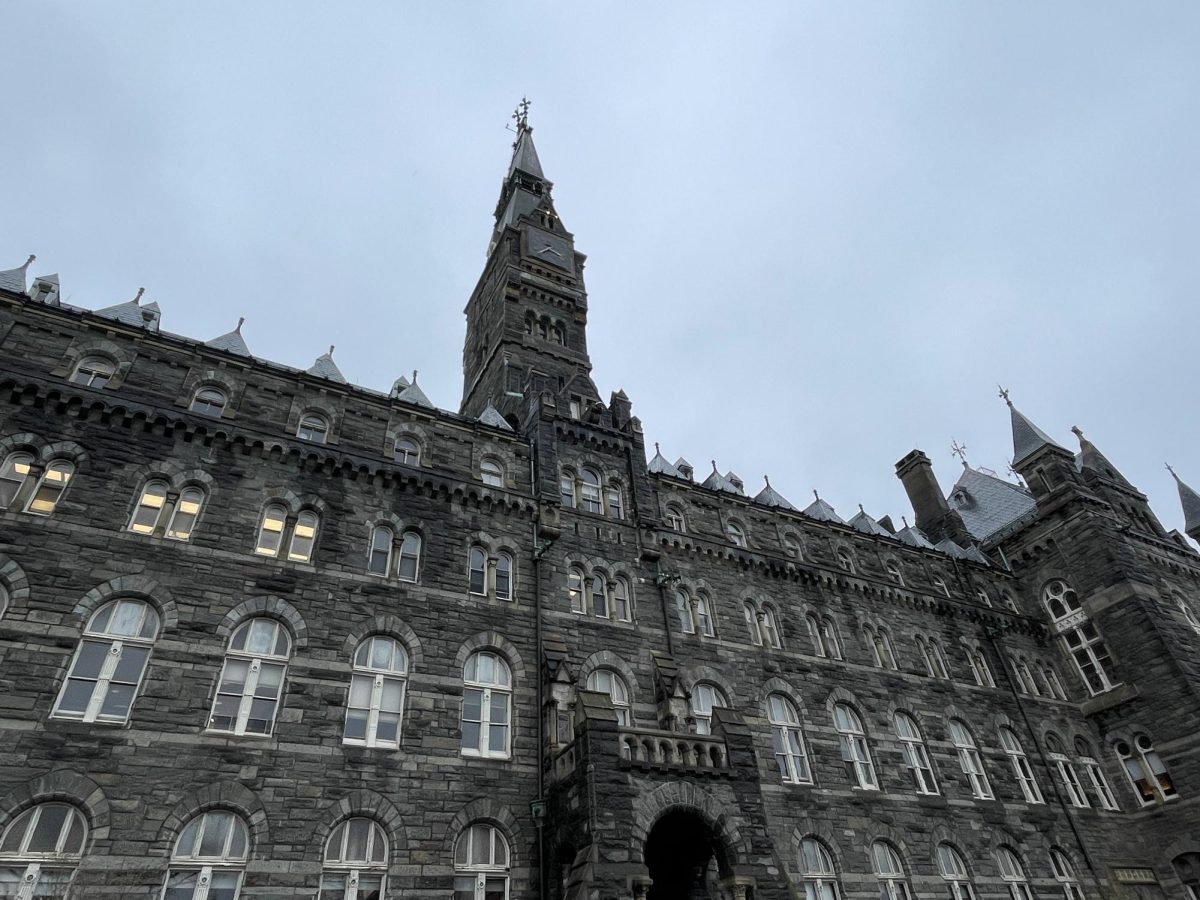The Cawley Career Education Center plans to launch a pilot program granting 10 students a $1,500 stipend for working unpaid internships this spring.
The pilot program is the first major development in an affordability campaign initiated by Georgetown University Student Association President Kamar Mack (COL ’19) and Vice President Jessica Andino (COL ’18). GUSA collaborated on the proposal with the Provost’s Office, the Cawley Center, the Center for Multicultural Equity and Access, the Center for Social Justice and the Georgetown Scholarship Program.

The Cawley Career Education Center is set to launch an unpaid internship stipend program for 10 students this spring semester.
Applications for the program, which ask about applicants’ part-time spring internships and how they contribute to students’ professional goals, are open until Dec. 6. The Cawley Center sent an email containing the application form to students Nov. 26. Juniors and seniors with demonstrated financial need are eligible.
According to Vice Provost for Education Randall Bass, a committee is slated to meet Dec. 12 to select the students who will be awarded stipends.
The program is funded by private philanthropy, the Provost’s Office and the Cawley Center.
The university plans to use use data collected from the pilot program to assess demand. Mack and Andino hope to provide stipends to more low- and middle-income students in the future, possibly through the establishment of an endowment.
Mack and Andino campaigned on a platform that promised to make student life more accessible for students from all income backgrounds. Mack said many unpaid internships offer valuable opportunities, but students often cannot afford to accept the internships over paid jobs.
“There are hundreds upon hundreds of nonprofits and government organizations in D.C. which provide opportunities for networking and professional development, but the ones that are unpaid often come at a huge opportunity cost for students,” Mack said in an interview with The Hoya.
Mack and Andino developed the idea for the program at the end of the summer after researching similar programs available at other universities, including The George Washington University and Columbia University. They introduced the idea to the Provost’s Office and began planning its implementation this fall.
Mack and Andino have also been working with the Office of Student Financial Services, which is set to help determine applicant’s financial need.
One of the main challenges of implementing the program was acquiring adequate funding, according to Bass.
“Everyone deeply believes in the need for the program,” Bass wrote in an email to The Hoya. “The primary challenge was finding the resources—which includes not just the stipends but support for the staff resources to deliver it.”
Mack said it was also important that the program would not inflict any additional costs on students.
“We didn’t want to raise tuition as a result of this initiative,” Mack said. “We were looking to secure funding for the program in which we approached the Office of Advancement to find a funding mechanism that wouldn’t incur a direct cost to students.”
Another challenge involved with implementing the program was ensuring its sustainability. According to Mack, the program is housed in the Cawley Center to make it more sustainable, a structure that mirrors that of similar programs in other universities, as the center is the first stop for many students who are looking to pursue career development.
Missy Foy, Director of the Georgetown Scholarship Program said an additional benefit of the Cawley Center running the program is that it is a sign of offices on campus getting more involved in assessing their efforts to support low-income students.
Bass said the program is one way the university is working to promote affordability.
“It is important to see this project as part of a ‘whole institution’ approach to affordability that is being addressed by many units and leaders on campus,” Bass wrote. “As a campus, we are trying to do everything we can to level the playing field for all Georgetown students, believing that ‘equity’ means not just equity of access to a Georgetown education, but equity of experience and outcomes.”


















